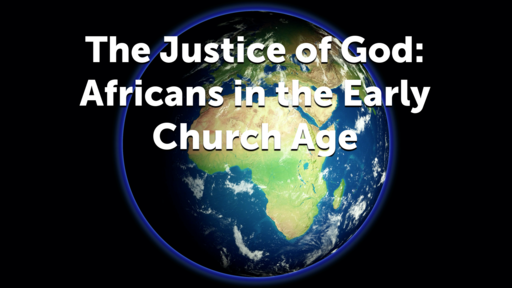The Justice of God: Africans in the Early Church Age

A brief examination of God’s grace upon Africans in the New Testament and Early Church Age
The Justice of God: Africans in the Early Church Age
Introduction
I. The Simon of Cyrene and his sons
Some identify Simon’s son Rufus with the Rufus mentioned in Romans 16:13
A first-century ossuary from the Kidron Valley in Jerusalem bears the name “Alexander, the son of Simon.”
II. People from African Nations at Pentecost
III. The Ethiopian Eunuch
IV. Cyprians and Cyrenians preached Jesus to Antiochene Hellenists
V. Simeon and Lucius among the Prophets and Teachers
God is gifting the church without ethnic distinctions
VI. A Jew named Apollos
VIII. Mark the Evangelist
African Christians look back to the longest uninterrupted memory of the coming of Jesus, since Mark, who wrote the earliest Gospel, was the first sent to Africa, likely in the 40s or 50s AD.
IX. The Coptic Orthodox Church
1. The City of Alexandria harbored the best library in the ancient world, a tradition of critical acumen, and world-class scholars in abundance sufficient to provide the pattern for early Christian education, which morphed into the medieval universities and stimulated intellectual genius throughout the world church in the third century.
2. The fury of martyrdom hit Africa sooner and harder than elsewhere, and elicited a depth of faith in the face of suffering and death that was unsurpassed.
3. The movement to make durable decisions by general consent based on meticulous debate on sacred texts was more fully formed in Africa than anywhere else in the third century.
4. The most astute ways of connecting orthodoxy with philosophy were more advanced in Alexandria than in Athens and more in Carthage than in Rome. Many of the best professors in Roman schools, such as Tyconius, Marius Victorinus, Lactantius, and Augustine, were born and bred in Africa.
5. The brilliant minds of Cyprian, Julius Africanus, and Optatus prepared the way for later European leaders such as Leo, Benedict, and Gregory the Great.
6. Clement, Origen, and Athanasius forged pathways in scripture interpretation of both testaments for others to follow in the Middle East and Europe.
7. The movement of intellectual history at the time of the earliest Neo-Platonists Ammonius Saccas, Plotinus, Marius Victorinus, and Synesius progressed from the south to the north, not from Europe to the African continent as it has often been portrayed.
